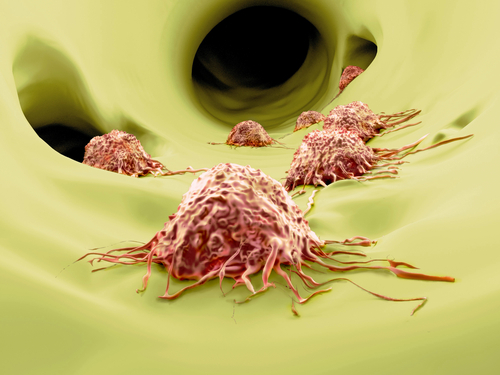Massachusetts pathologist Lija Joseph, MD, has created an innovative program that allows patients, including those with breast cancer, to actually see the cells that make up their malignancies.
In doing so, the hope is that patients will gain the understanding, strength, and knowledge that will help them better manage the fear and anxiety that often accompanies a cancer diagnosis.
At the age of 45, Carol Palmer learned she had invasive breast cancer. She was treated and remained cancer-free for nearly two decades, after which a routine mammogram showed the cancer’s return. At some point, it occurred to her that, after everything she’d endured — diagnosis, surgeries, and therapy — she had never viewed her cancer.
“I just thought it would be an amazing opportunity for me to come face to face with my cancer cells, seeing them right there in front of my eyes, trying to understand what is actually causing all this commotion inside my body,” she said in a press release.
Joseph agreed. As the chief of pathology at Lowell General Hospital near Boston, she’s the one who makes the diagnoses. So with the hospital’s backing, she created a program in 2017 in which patients come to her lab and speak with her while getting a close, personal view of what one patient called “the dragon I’m slaying.”
“It has been very powerful for me as a pathologist to sit and talk with patients who are facing this dragon head on,” said Joseph who, since the program began, has met with some 75 patients of varying ages. “A cancer diagnosis often makes my patients feel very vulnerable, but specifically seeing their own cancer cells under a microscope — to see what I see — empowers them, helping them to better understand their disease. It is a unique moment for them; it makes it real and helps them take control of what lies ahead.”
Lowell General oncologist Anasuya Gunturi, MD, PhD, quickly got on board with the program and began referring patients to Joseph.
“Immediately, I felt it was a great idea,” she said. “When patients meet directly with a pathologist like Dr. Joseph, they understand their disease in such a direct way, and more importantly, they understand that their doctors are talking to each other. It makes them feel like they are being taken care of in a more comprehensive way.”
“They are truly coming to understand their illness,” Joseph said of patients, “and this helps navigate their journey to wellness, completely and thoroughly. I am just a fellow traveler in that journey for them.”
As for Palmer, she said her time with Joseph gave her more peace of mind. “I began to see the tremendous importance of the pathologist and that they are not just dealing with slides and cells, they are dealing with people like me. And I love that.”
Other U.S. hospitals and institutions have contacted Joseph for assistance in establishing their own programs. For more information on Joseph’s program, go here.

